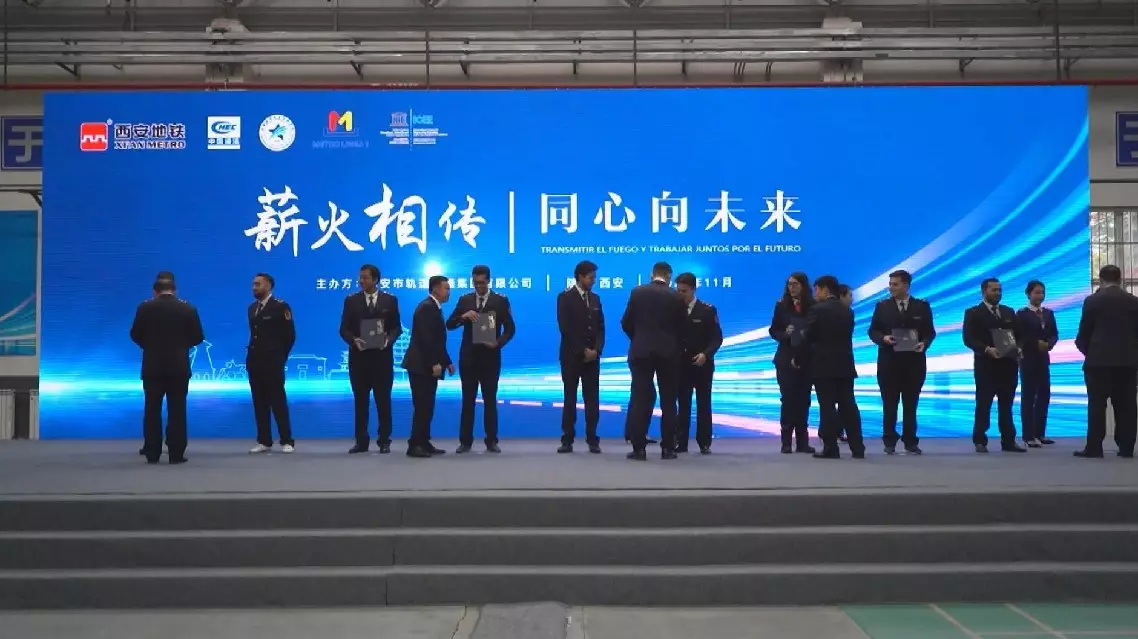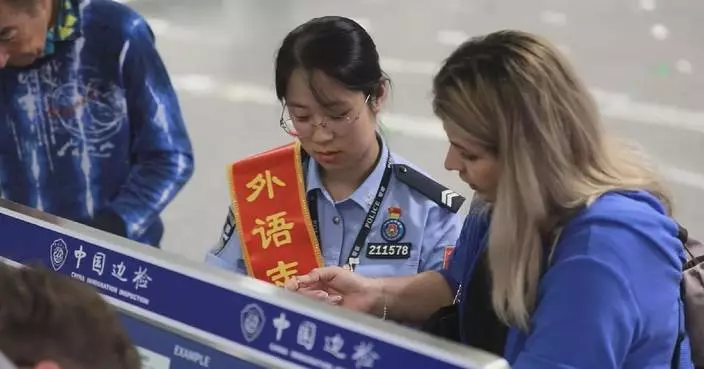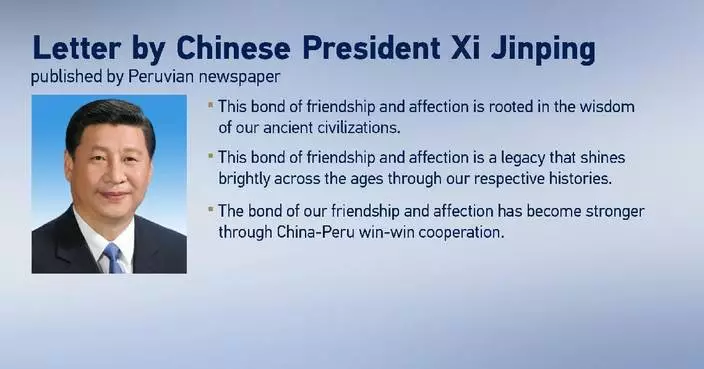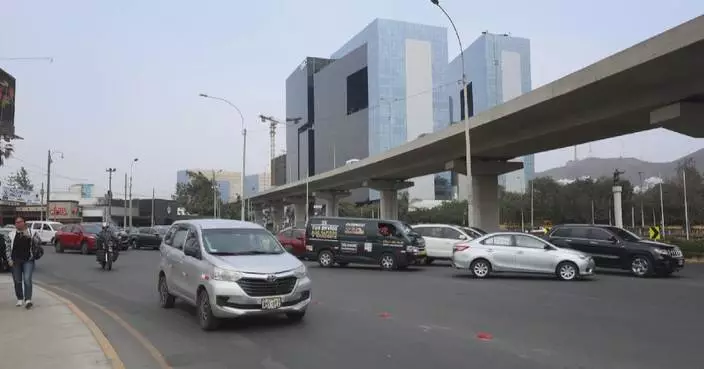Ten Colombian trainees on Tuesday graduated from the "Operation and Maintenance Plan" training program for the Bogota Metro Project in Xi'an, capital of northwest China's Shaanxi Province, the first batch of new recruits completed training in China for the Chinese-contracted metro project.
They will return to Bogota, the capital of Colombia, to participate in the operation and management work of the city's first metro line, which will begin service in 2028.
The subway line is being built by a consortium of Chinese companies, namely China Harbor Engineering Company Limited and Xi'an Metro Company Limited.
The Bogota Metro Project has made steady progress in infrastructure construction, personnel education and training, thanks to the support of governments, relevant enterprises, and education institutions from both sides.
The graduates have mastered the knowledge and operational methods of urban rail transit systems after a year of study.
"I learned a lot in China, and I need to bring that knowledge back to my country. I have a very important responsibility to build my country's subway, to build the Bogota Metro Line 1, so I studied very hard every day. I think it would be wonderful to come back to Xi'an sometime," said David Wan, a Colombian student.
Colombian Ambassador to China Sergio Cabrera lauded the training program as contributing to enhancing friendship between Colombia and China.
"I also went to Xi'an when the students first came to China a year ago. At that time, they had just arrived and did not know anything. A year later, I saw that they spoke Chinese very well, and that they had learned a lot and studied very hard. I watched their study videos, and I was proud of their achievements. It shows the abilities of these young Colombians, who have adapted to their new work and life very well. They have established a long and solid friendship between Colombia and China," he said.
Meanwhile, the second batch of 40 trainees set to begin their sessions in China. Selected from over 2,000 applicants, they have signed contracts to become employees of the Bogota Metro Project.
Building on the experience gained from training the first batch, this program has established a specialized training team to help trainees thoroughly understand and master the knowledge and operational methods of urban rail transit. The training will also equip them with initial management experience and enhance their skills in repair and maintenance.

Colombian trainees complete training in China for Pogota Metro project
China, with numerous successes in combating desertification and dune fixation, has been sharing its experience with countries participating in the Belt and Road Initiative (BRI).
As a party to the United Nations Convention to Combat Desertification (UNCCD), China has in 2019 achieved the UN goal of zero growth of land degradation by 2030 ahead of schedule.
The country has set up the China-Arab and the China-Mongolia desertification control centers and established overseas demonstration bases and cooperation centers for sand control to provide technical support for related countries.
China has also engaged in multilateral policy-making dialogues, information sharing and collaboration with South Korea, Mongolia, and Russia to jointly push forward desertification prevention, land degradation control, and drought response in northeast Asia, and forged the Kubuqi International Desert Forum into a platform with international influence.
"China's experience in combating desertification is very suitable for countries participating in the Belt and Road cooperation, especially those in Africa and Central Asia. For instance, the straw checkerboard technique, a dune fixation technique in which straw is placed on the desert surface in the shape of a checkerboard, is called 'the magical China square'. Such a technique is easy to apply, good in effect, and quick in results. The chosen plants with high stress resistance, coupled with water-saving irrigation technologies, have all been greatly promoted in many countries in Central Asia and Africa," said Wu Bo, director of the Institute of Desertification Studies of the Chinese Academy of Forestry.
In Ethiopia, researchers from Xinjiang Institute of Ecology and Geography of the Chinese Academy of Sciences created a 200-hectare base for rotational grazing and bushland conservation to help in sustainable land use and combating desertification.
In Mauritania, Chinese researchers created a "green park" that covers about 2.67 hectares to address local needs for desertification prevention and sustainable livelihood development.
The park includes carefully-selected windbreak and sand-fixation materials, as well as over ten types of suitable plants and products adapted to local environmental conditions. The project can benefit the local community through the cultivation of fruit trees and vegetables, and promotes the integration of the Chinese way to prevent desertification and the technology of "Green Great Wall" .
"We hope our feasible experience and methods, such as the Shapotou anti-desertification technique to protect railways, the Dengkou dune fixation way, and the Kekeya way, can be promoted in other countries through exchanges," said Wu.
The UNCCD was adopted in 1994 to assist countries and regions affected by severe drought or desertification, with a total of 197 parties. In 2015, the United Nations incorporated desertification control into the 2030 Agenda for Sustainable Development, proposing to achieve the goal of zero growth of land degradation by 2030, forming a global consensus on combating desertification.

China' experience in desert control helps green BRI participating countries










